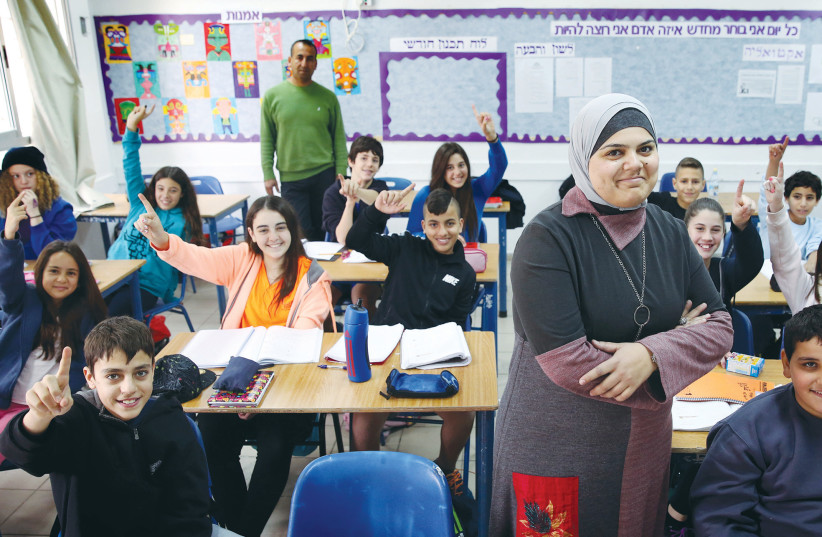In October 2021, the government passed a resolution approving a new five-year plan to reduce inequalities between Jewish and Arab citizens, named Takadum (progress, in Arabic). One chapter focused on the need to make significant progress in addressing Israel’s mixed cities (both Jewish and Arab residents) problems, stating that “the Economic Development Authority and the Prime Minister’s Office will work together to formulate a proposal for a multi-year plan for mixed localities, to be presented for the approval of the government within 150 days.”
The five months allotted to the plan have passed, but it has yet to be brought before the government for approval. Is this because those who were given this task by the relevant ministries failed to meet the schedule? The answer is no. The professional staff of the Economic Development Authority (in the Ministry of Social Equality) and the Prime Minister’s Office carried out a serious work process, made real progress, including by collaborating and supporting the Israel Democracy Institute’s comprehensive research on the situation in mixed cities.
Why, then, has the plan not yet been implemented? We can only surmise that the current political instability is derailing this process. This should be of concern to all Israelis, as it bears with it the potential for generating even greater instability and is liable to lead to further outbreaks of violence, sooner or later. Clearly, there were many reasons underlying the disturbances of May 2021, including political and national factors. At the same time, we should not – even for a moment – underestimate the impact of the very severe socioeconomic situations of Arab residents in mixed cities, with these situations breeding hostility and resentment, and destroying any hope for a future among them.
Socioeconomic considerations
According to data from the Central Bureau of Statistics, around 44% of Arab children in mixed cities live below the poverty line, a rate four times as high as that among Jewish children in these cities. Our study reveals that the last five years have seen a rise in poverty rates among the Arab residents of mixed cities, side-by-side with a significant decline in poverty rates among their Jewish neighbors. Anyone pinning their hopes for rescuing Arab children from this cycle of poverty on the struggling Arab education system is likely to be disappointed: In most mixed cities (excluding Haifa and Tel Aviv-Jaffa), the Arab system suffers from discrimination by the Ministry of Education, expressed first and foremost in a gap of around 20% relative to the Hebrew education system.

In such circumstances, it is no surprise that graduates of the Arab education system encounter serious difficulties in entering higher education and in finding their place in the workforce. So here, too, we are seeing another worrying trend: Growing numbers of young people are falling into the NEET category: Neither in education, nor in employment, nor in vocational training frameworks.
Who will “adopt” these Arab youths and young adults? Most likely, crime rings. And when riots break out? Clearly, these young people are likely to be active participants. Indeed, the attempt to disconnect the level of unrest from the community’s socioeconomic situation is not only untenable –it is a real barrier to addressing the problem. Of course, Israel’s law enforcement agencies should do all they can to ensure the safety and sense of security of both Jewish and Arab residents on a routine basis, as well as during emergencies.
But at the same time, action must be taken to narrow socioeconomic inequality over the long-term. For every social worker in Arab society, for every camera installed at points of friction, it is also important, among many other things, to upgrade the technological capabilities of Arab children – another painful issue raised by the study’s findings.
The plan going forward
The government’s five-year plan is not perfect and the sum of NIS 300 million allocated to addressing the needs of mixed cities is certainly insufficient, but it is a good start. The government must overcome the political challenges and approve the multi-year plan for mixed cities as soon as possible. It must adopt a strategic, long-term view, and ensure the safety of both the Arab and Jewish citizens of Israel.
Dr. Nasreen Haddad Haj-Yahya is the director of the Arab Society in Israel Program at the Israel Democracy Institute. Adv. Oded Ron is a researcher at the Israel Democracy Institute.
